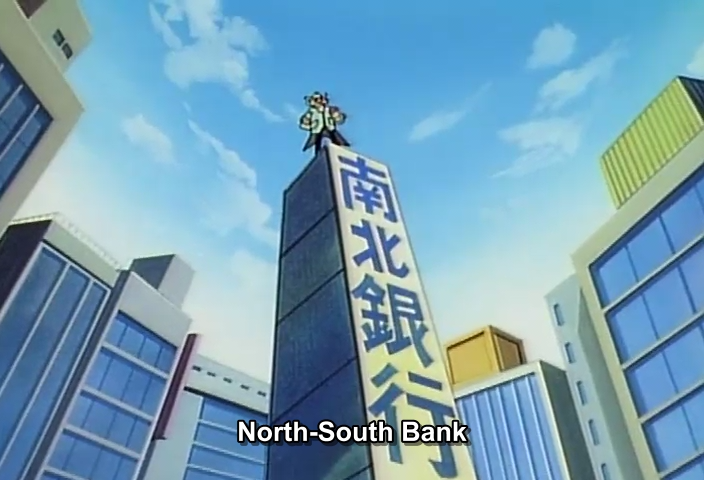It means nothing, trust me.
In manga/anime, authors customarily create weird, non-sense or parodic proper nouns for companies, schools, newspapers, etc. They do so because they are legally not allowed to use real existing proper nouns.
There often are, however, "funny" similarities between some of those fictional proper nouns and the real proper nouns that they are named after.
Among the most famous and often used are:
「毎朝新聞」← The most famous Japanese newspaper that does not exist!
I have been seeing this imaginary newspaper name in manga, dramas, etc. all of my life. It is so obviously taken from both 「毎日新聞」 and 「朝日新聞」, both of which are existing major newspapers.
「[帝都大学]{ていとだいがく}」、「帝都[銀行]{ぎんこう}」, etc.
You will see those often as well. Upon seeing/hearing the 「[帝都]{ていと}」 part, most Japanese-speakers will think of 「[東京]{とうきょう}」.
「ワクドナルド」 with 「ワ」instead of 「マ」.
The imaginary hamburger chain.

Likewise, 「[南北銀行]{なんぼくぎんこう}」 is just an imaginary bank. It would be pretty useless analyzing the 「南北」 part. It just means "south and north" and , even though this bank does not exist, it looks "normal" for a business name and that is all that matters. Looking "kind of normal" is the key here. Unless it is important to the story, you do not spend much time thinking of a unique and great-sounding proper name. It simply will not serve its purpose.


